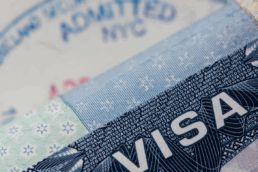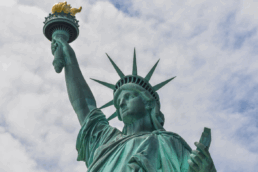The H-1B classification provides temporary permission for employers to hire qualified foreign nationals in specialty occupations. The Department of Homeland Security (DHS) typically accepts a limited number of H-1B cases during each of the federal government’s fiscal years due to the annual cap. There are 65,000 H-1B cap slots, with 20,000 additional H-1B slots that may be allocated to cases involving advanced degrees from American colleges or universities only. Since DHS usually receives many more cases than it may accept, DHS conducts a computerized, lottery-style selection process to allocate the H-1B cap. Historically, DHS would first allocate the 20,000 slots reserved for American advanced degree cases and then allocated the 65,000 slots from the general pool of cases.
On January 31, 2019, DHS posted a final rule amending the way in which DHS will administer the H-1B cap. First, beginning in April 2019, DHS reversed the order of its H-1B cap allocation. To increase the number of cases selected with advanced degrees from American colleges and universities, DHS now randomly selects H-1B cases from the general pool and then from the pool restricted to advanced degrees from American schools. During the April 2019 H-1B cap selection process, DHS selected 11 percent more cases with advanced degrees from American schools.
Second, DHS has established a mandatory electronic registration process for employers seeking to file H-1B petitions for beneficiaries that may be counted under the regular cap or advanced degree exception. This new regulation is to go into effect for the 2021 Fiscal Year, although further delays are possible. This means, for the upcoming H-1B cap season, employers will be required to register their company and intended beneficiary online with U.S. Citizenship and Immigration Services (USCIS).
DHS has proposed a $10 fee for each electronic registration. To combat fraud or misuse of the system, each employer may submit only one registration for each proposed H-1B employee. If DHS discovers an employer has submitted multiple registrations for the same foreign national, they will discard all registrations.
The registration period will begin at least 14 calendar days before the first day of filing H-1B petitions each fiscal year. For example, the first filing date for the upcoming fiscal year is April 1, 2020, therefore, the registration period will be open no later than March 18, 2020. The registration period will be announced to the public at least 30 days prior to opening.
USCIS will conduct a random selection of all the registrations received. The number of registrations selected will be greater than the 85,000 visas allotted each year—generally between 95,000-100,000 to account for denied petitions. Unselected registrations will not carry over to the next fiscal year, employers will be required to re-register their unselected beneficiaries the following year.
If a registrant is selected, USCIS will notify that registrant and his/her counsel that the employer is eligible to file an H-1B cap-subject petition on behalf of the name beneficiary with the designated filing period. The notice of selection will indicate a filing location and the designated filing period during which the H-1B petition must be filed. Employers will be provided at least 60-days to properly file a completed H-1B petition. It is important H-1B employers be aware of this new process and understand its implication on their future use of the H-1B visa program. Our attorneys at Berardi Immigration Law will be happy to discuss any questions or concerns you may have regarding this new process.
Ready to have Berardi on your side?
Whether you’re a business looking to hire or a professional hoping to relocate, immigration law can be complicated. But you don’t have to do it alone. Put our experience to work for you.



